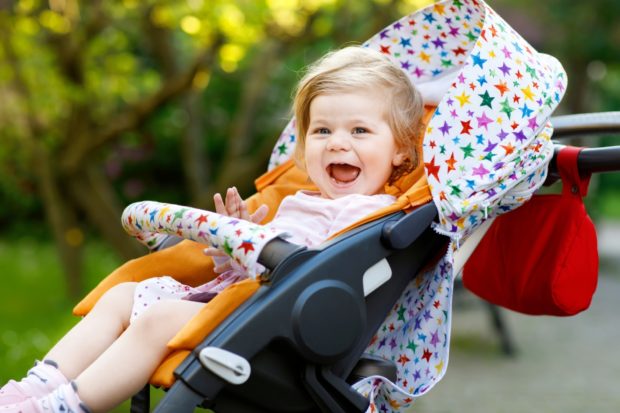Babies’ behavior could predict their personality more than 20 years later, says study

Certain behaviors in babies could predict their personality as adults, according to new research. Image: romrodinka/IStock.com via AFP Relaxnews
New United States research has found that a baby’s personality at around 14 months could predict what their character will be like as adults.
Carried out by researchers at the University of Maryland, the Catholic University of America and the National Institutes of Mental Health, the new study looked at 165 babies when they were 14 months of age to assess a specific type of temperament among the babies, called behavioral inhibition (BI).
Babies and children with this temperament show a cautious, even fearful, behavior toward people, objects and situations that they do not know, with previous research showing that children with BI are more likely to develop social withdrawal and anxiety disorders than children without BI.
To look at their development, the researchers assessed 115 of the children when they had reached 15 years of age, and 109 at age 26. when they were assessed for psychopathology, personality, social functioning and education and employment outcomes.
The findings, published in the journal Proceedings of the National Academy of Sciences, showed that the babies who showed BI tended to have a more reserved personality at age 26. They also reported having fewer romantic relationships in the previous ten years, and lower social functioning with friends and family. However, BI was not linked with the participants’ education and employment outcomes.
In addition, the team also found that children who had shown sensitivity to making errors during the assessments at age 15 had a higher risk for internalizing disorders such as anxiety and depression in adulthood.
“While many studies link early childhood behavior to risk for psychopathology, the findings in our study are unique,” said Daniel Pine, M.D., one of the study’s authors. “This is because our study assessed temperament very early in life, linking it with outcomes occurring more than 20 years later through individual differences in neural processes.”
The researchers say that the findings may help make it easier to identify earlier the individuals who are most at risk for developing internalizing disorders in adulthood.
“We have studied the biology of behavioral inhibition over time and it is clear that it has a profound effect influencing developmental outcome,” added study author Dr. Nathan Fox, with the team recommending further research with larger and more diverse groups of subjects. RGA
RELATED STORIES:
Pushing yourself to be more outgoing could make you happier
Children who feel connected to nature are also happier, finds new study